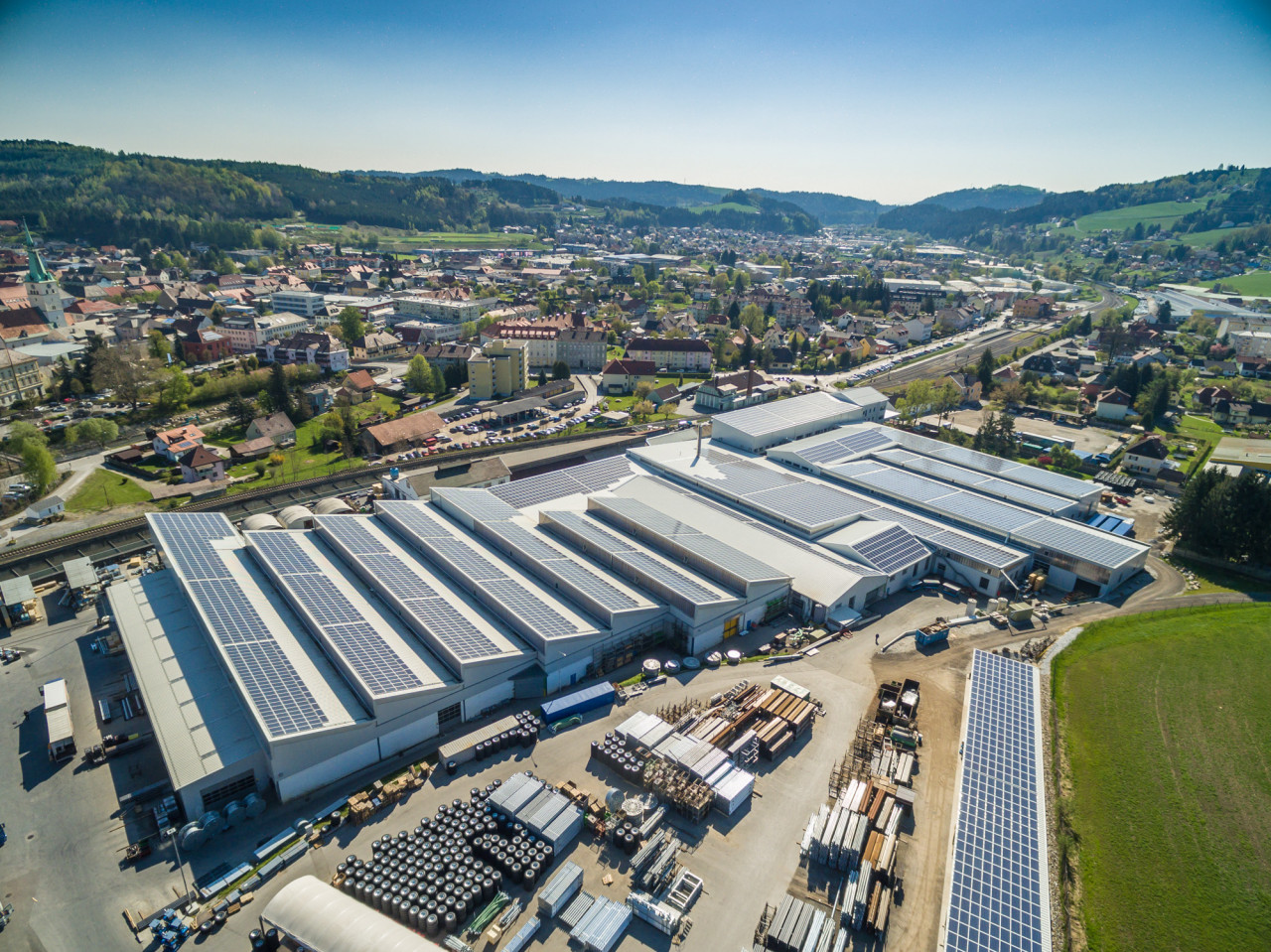
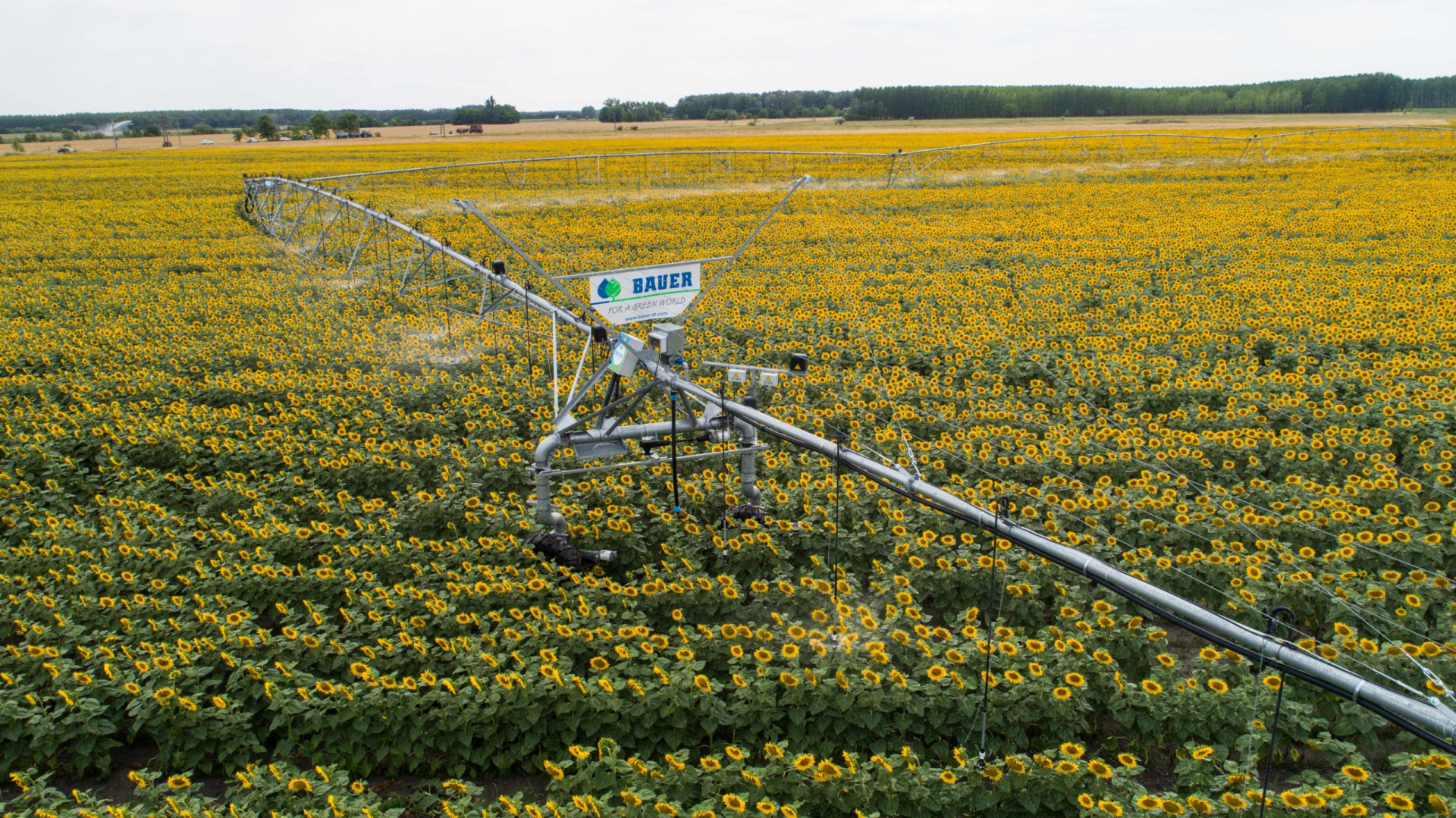
In the Great Hungarian Plain, the Univer Group is preparing the soil for peppers, tomatoes, corn and other crops. Many great challenges will be faced here by the irrigation systems of the Bauer Group.
The Univer Group has made a name for itself with typical Hungarian products such as garlic paste with pepper or onion as well as mustard, ketchup, fruit preserves and baby food. Founded in 1948 in Kecskemét, Univer is now a major player in the Hungarian food industry and employees 1300 people in the region. The delicacies are not limited to Hungarian stores, they are sold all over the world.
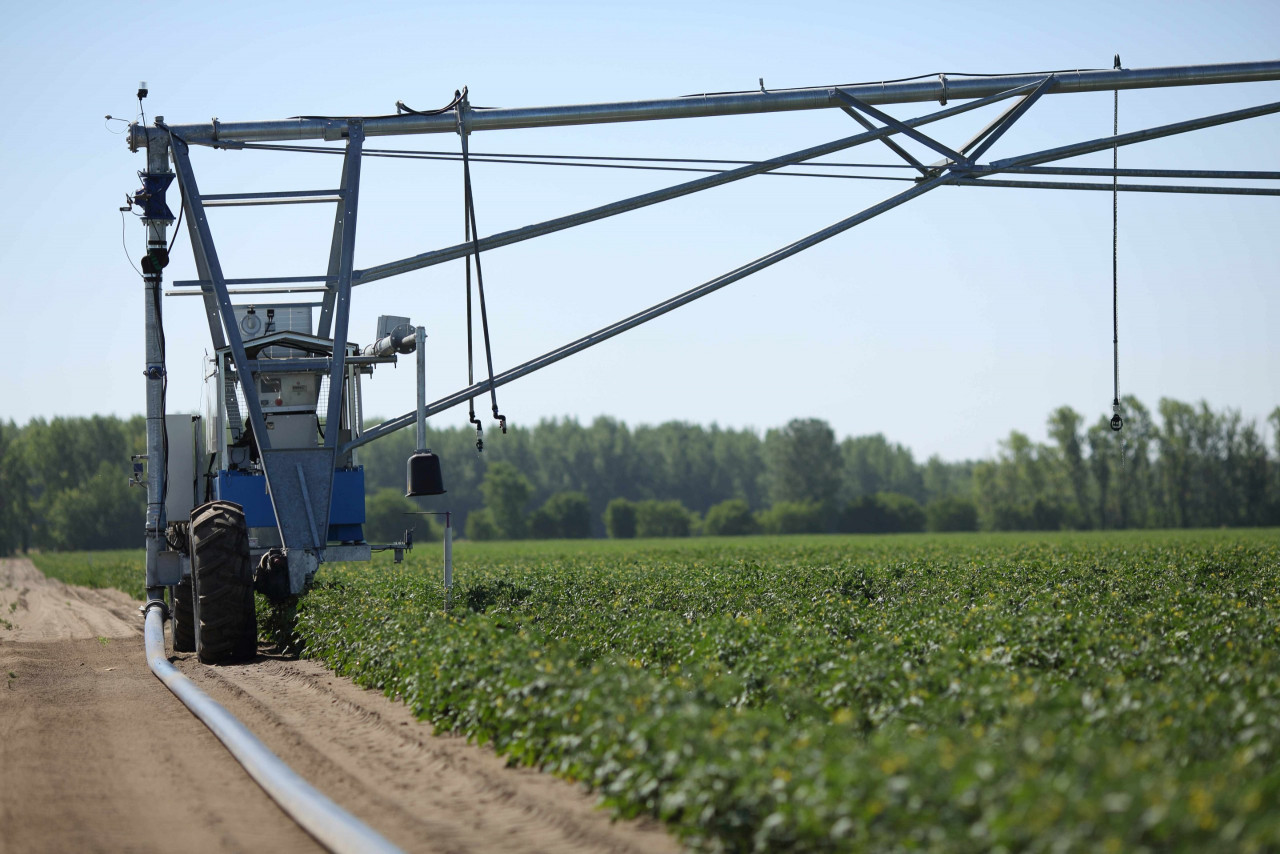
The high-quality ingredients for Univer products originate exclusively from domestic agriculture. Univer accomplishes this by working with a network of several hundred Hungarian farmers and producers within an 80-kilometer radius of Kecskemét (all farms are subject to the strictest possible quality controls), and most of these partnerships have been in place for decades. It is not uncommon to find farmers of the second or third generation who are still working with Univer, a clear indication of how highly the company values long-term relationships.
Together with two large farming operations, Univer recently founded an organization that is entirely dedicated to optimal irrigation of Hungarian soils. The Univer Irrigation Development Consortium supports the fields in the vicinity of Kecskemét in order to capitalize on logistical advantages. The hot summers experienced in the Great Hungarian Plain make reliable, efficient irrigation an important aspect of ensuring high yields and product quality. In the year 2020, for example, 1.3 billion Forint was invested in a large-scale project for irrigating a total of 280 hectares – for which Bauer Hungária supplied all the necessary equipment.
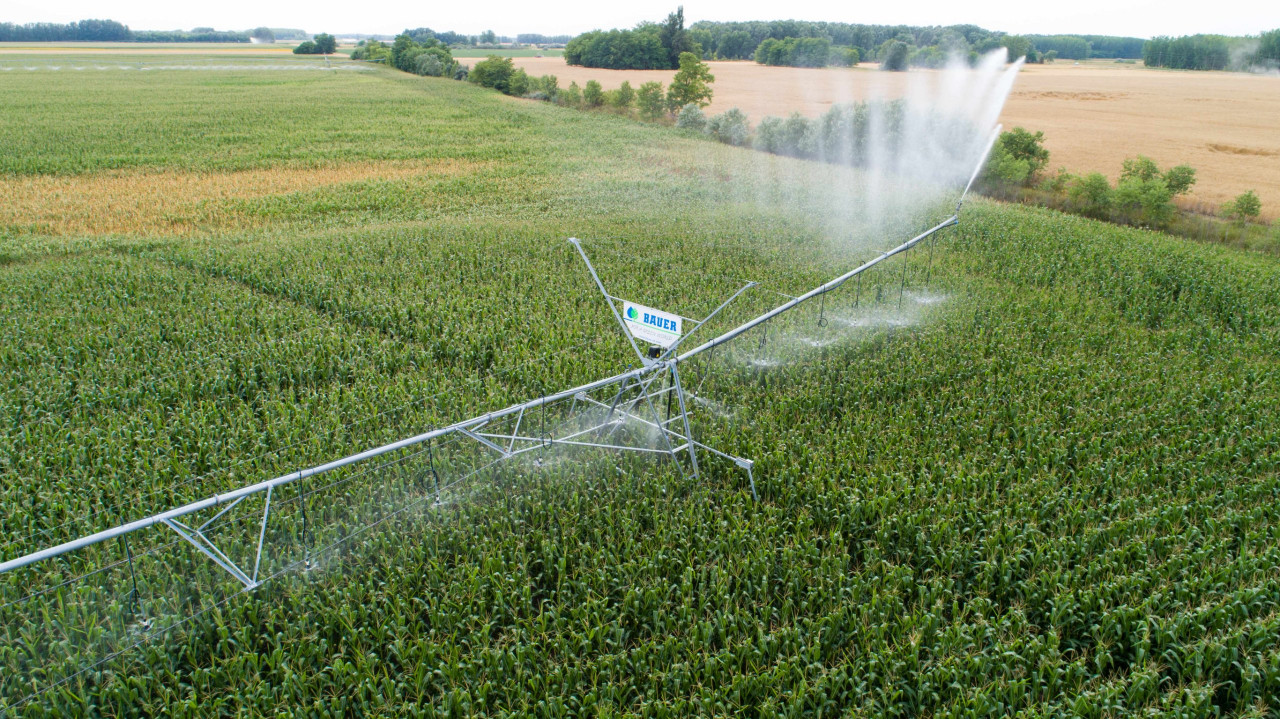
The irrigated crops include a variety of vegetables, such as peppers, corn, sunflowers and tomatoes. The tomatoes respond particularly sensitively to improper handling, making them a major challenge to cultivate. When it comes to irrigation, nature offers the best example: the closer the droplets are in size and intensity to natural rain, the better the water is taken up by the plants. Bauer equipment makes it easy to ensure even water distribution with a consistent droplet size across the entire field. The nozzle size can also be precisely adapted to minimize evaporation losses.
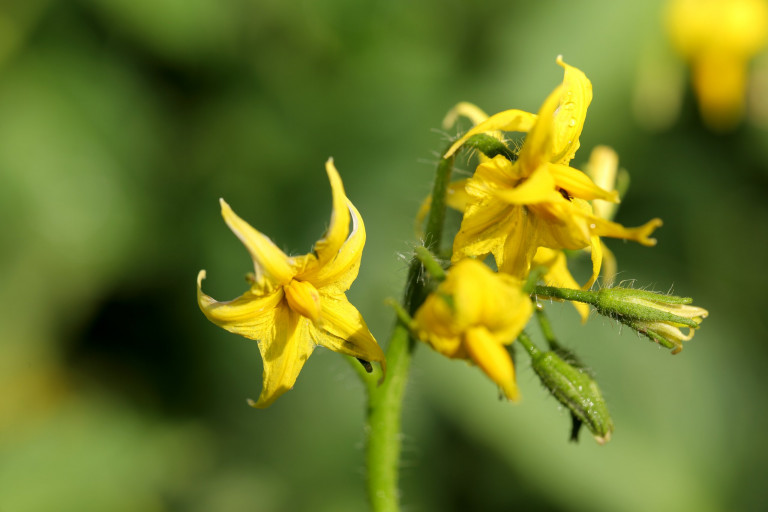
Irrigation is indispensable in the Great Hungarian Plain. The hot air temperatures of 35 to 40 °C experienced in the summer are very hard on the plants, and that’s before taking account of the dangerous heat from below: the sandy soils in the region can reach temperatures as high as 55 °C!
This makes it tremendously important to cool the ground, which requires a continuous, low-intensity supply of water. If the water is too cold, it puts stress on the plants. The water, which comes from Tisza 15 kilometers away, must therefore be pumped into a giant reservoir to be warmed up before it can be used for irrigation.
To avoid unnecessary risks, the systems are equipped with weather stations and ground sensors. With this Bauer technology, Univer can guarantee optimal conditions for the plants throughout the entire irrigation season.
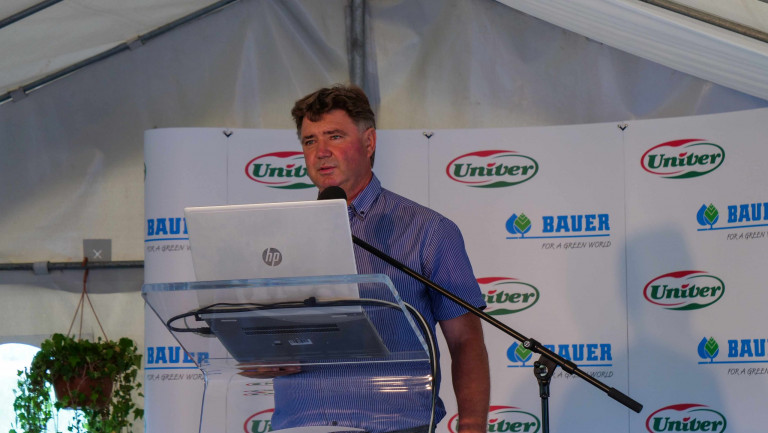
“Bauer equipment makes it easy to ensure even water distribution with a consistent droplet size across the entire field.”
László Dunai (General Manager of Univer Agro GmbH, Cultivation Specialist)
The Univer Irrigation Development Consortium is well-supplied with Bauer equipment:
The systems are fully automated with digital control. Thanks to SmartRain, the irrigation progress and machine status can be monitored from anywhere.